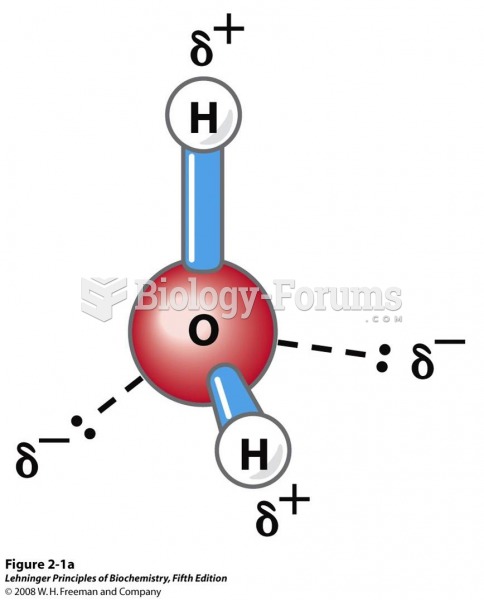|
|
|
Did you know?
When Gabriel Fahrenheit invented the first mercury thermometer, he called "zero degrees" the lowest temperature he was able to attain with a mixture of ice and salt. For the upper point of his scale, he used 96°, which he measured as normal human body temperature (we know it to be 98.6° today because of more accurate thermometers).
Did you know?
In Eastern Europe and Russia, interferon is administered intranasally in varied doses for the common cold and influenza. It is claimed that this treatment can lower the risk of infection by as much as 60–70%.
Did you know?
Cyanide works by making the human body unable to use oxygen.
Did you know?
There are more sensory neurons in the tongue than in any other part of the body.
Did you know?
Vaccines prevent between 2.5 and 4 million deaths every year.







